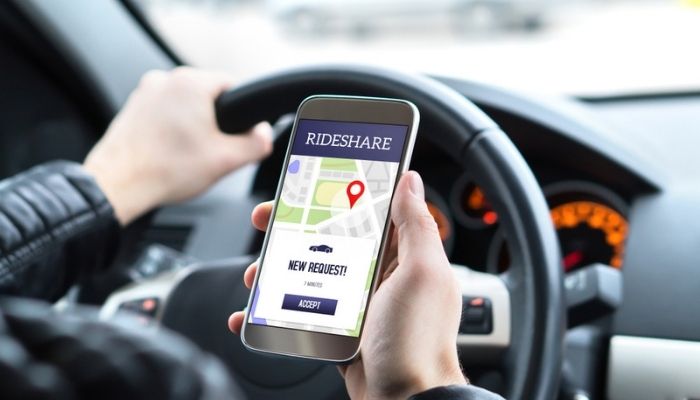Is Rideshare Insurance Essential For My Personal Vehicle?

The popularity of rideshare apps has exploded in the last few years. Apps such as Uber and Lyft have become the most efficient means of transportation for many people. Ridesharing apps help match people with drivers who are willing to take them to their intended destination. As the demand for these apps continues to rise, more people are attempting to earn money through working for these companies.
If you want to start driving for a rideshare app, remember that you are considered a commercial driver as soon as you start allowing a passenger into your vehicle. You will need to find a separate policy away from your personal auto insurance to stay protected. So, if you plan to start driving for one of these companies, here are some things to consider.
Rideshare Insurance
Your personal auto insurance stops covering you once you start driving for the service. If you are involved in an accident while waiting between passengers, you may not be covered. Consider the benefits of rideshare insurance. Rideshare insurance covers those gaps so that you are protected at all times. Ensure that you inform your insurance company that you plan to drive commercially. Withholding the truth could cause your insurer to cancel your policy.
Ridesharing services are classified as transportation network companies. These companies do offer insurance for their employees, but you may not be completely protected. Working as a rideshare driver requires multiple periods. While you are logged off of the app, your personal auto insurance covers you. Once you log into the app and are waiting for a passenger, you may have third-party liability coverage.
Once you have a passenger in the car and you are taking them to their destination, you will have liability, comprehensive collision, and uninsured motorist protection. Remember that you may be required to pay a deductible before the third-party insurance coverage kicks in to cover any damages.
Ridesharing insurance costs around $10 per month, and you can add around 20% to your premium. Some companies do not offer rideshare insurance, and you may be forced to add commercial auto insurance instead. Inquire with your insurance company about adding an endorsement to your insurance policy.
Common Tips
There are many benefits to becoming a rideshare driver. Notably, you get to set your own schedule. Develop a plan. Set up an income goal, write down the number of hours you plan to drive each week, and how to maximize your time. Research different price opportunities. Learn about the area that you are driving in. Also, research the traffic patterns, road conditions, and popular events and ensure that your vehicle always has a full gas tank.
Make sure that you have a good phone. Your phone is one of your most important tools as a rideshare driver. Your phone connects you with potential customers, includes a GPS, and provides access to other resources. Your phone charger should always be nearby, as running the app all day will quickly drain your battery. Invest in a phone mount, as that will help you safely view your GPS while you are still looking at the road.
Becoming a rideshare driver allows you to earn money while maintaining a flexible schedule. However, there are still risks that you navigate while you’re on the road. Adding the necessary insurance will protect you in case of an emergency. Contact our insurance experts at Abbate Insurance Associates, Inc. today if you have any questions!







